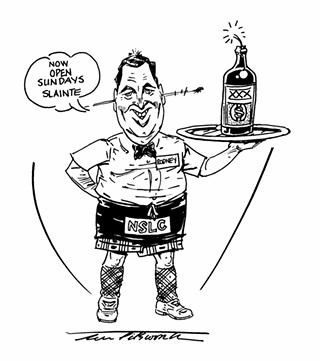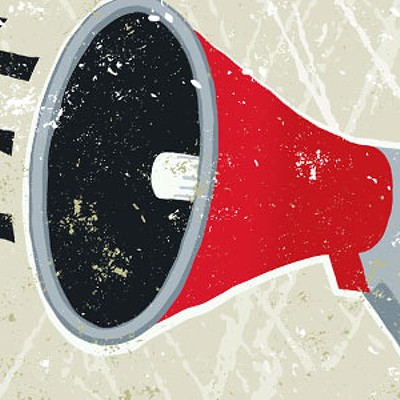I was tempted to pour myself a stiff drink when I heard that the provincial government is allowing 51 liquor stores (27 in Metro) to open seven days a week, starting this Sunday. Dozens of rural convenience stores will also be permitted to sell booze from noon to 5pm on Sundays. The Nova Scotia Liquor Corporation hopes to earn extra profits of about $2 million a year to add to the nearly $200 million in annual profits it contributes to the provincial treasury. But those profits don’t look so great when you compare them with the total economic and health costs of drinking. The federally funded Canadian Centre on Substance Abuse estimates that in 2002, the economic and health costs of alcohol in Nova Scotia totalled almost $419 million. And if Sunday liquor sales increase our consumption, the drain on the provincial budget and on our economy is certain to rise.
The staggering costs of alcohol consumption are one of the country’s best-kept secrets. A federal-provincial report issued in April says that the national cost of alcohol-related harm totalled $14.6 billion in 2002. That included $7.1 billion for lost work time, $3.3 billion in direct health-care costs and $3.1 billion for law enforcement. The report estimates there were 4,258 alcohol-related deaths in 2002 including more than 1,200 from cirrhosis, 909 in auto accidents and 603 from suicide. “Alcohol-attributed illness accounted for approximately 1.6 million days of acute care in hospital,” the report adds.
OK, maybe Rodney’s Tories missed that report before they decided to open liquor stores on Sunday, but why didn’t they heed a lengthy report their own health department issued in 2005? “The economic, social and health costs of alcohol to Nova Scotia are enormous,” it concluded, adding that alcohol accounted for about 3,000 hospital admissions in Nova Scotia each year between 1999 and 2003. “During the same time period, 1,149 deaths can be attributed to alcohol use in Nova Scotia, with liver disease, alcohol-related cancers, motor-vehicle crashes, suicide and falls accounting for 83 percent of all alcohol-related deaths.” The report adds that an estimated 403 babies born in Nova Scotia in those years were affected by prenatal exposure to alcohol.
Given the well-documented costs of alcohol, it seems strange that all Canadian provinces have been steadily loosening their controls over sales during the last decade or so—building more, and bigger, self-serve stores that are open longer; permitting privately-owned stores to sell alcohol and allowing customers to buy booze on credit. At the same time, those same provincial governments have won widespread public support for imposing ever-increasing restrictions on tobacco sales. Yet the $17 billion annual economic costs imposed by tobacco are only slightly higher than the $14.6 billion that alcohol costs us each year. Aside from widespread ignorance about these costs, experts agree that many Canadians believe alcohol causes problems for only a few hard-core drinkers. It’s a myth the Globe and Mail tried to dispel when it ran an in-depth report on alcohol in March. It quoted Juergen Rehm, chair in addiction policy at the University of Toronto’s faculty of medicine. “Alcohol has a huge toll on society, and that toll is slowly increasing,” Rehm said. “It is always surprising why a society like Canada is willing to tolerate such a high cost. The majority of Canadians drink, and in their heads, ‘The cost of alcohol is the alcoholics. It’s not us.’ And that’s just wrong.”
I should end, I suppose, by calling on the provincial Tories to reconsider Sunday liquor-store openings, but somehow I doubt they’ll heed my earnest plea. So, I might as well drown my earnestness with a couple of half-litre cans of 10 percent Danish beer—a real NSLC Sunday bargain at only $2.59 each. I’ll be drunk as a lord in no time and eventually, when my liver gives out, the taxpayers will just have to come to my rescue. SKOL!
Please enjoy responsibly. Email: [email protected]















